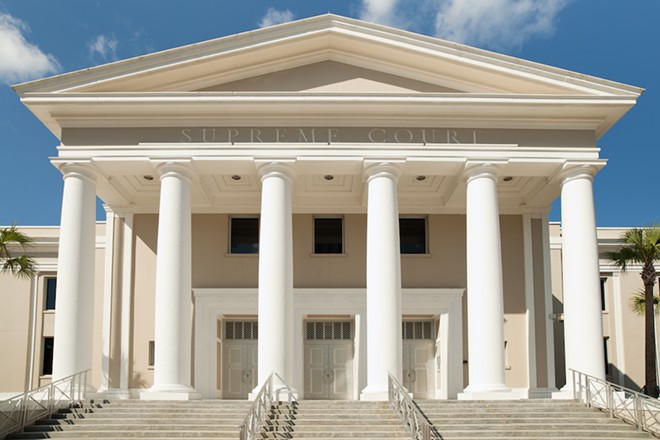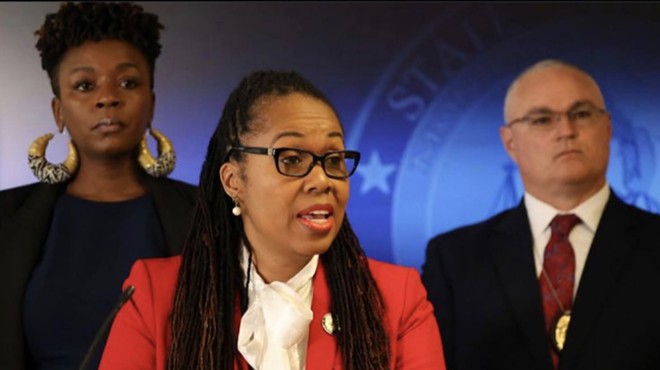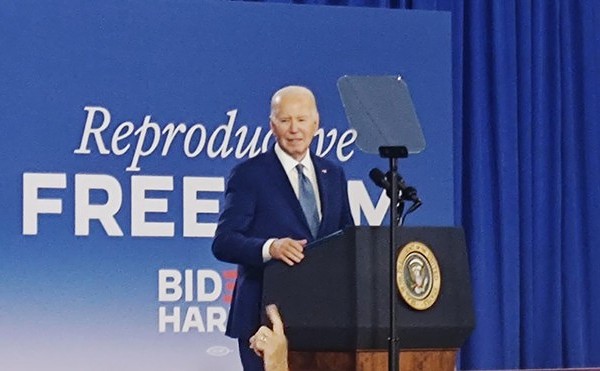Justices in February approved the change but then accepted comments about the decision. In a 5-1 order Thursday, the court said it had considered comments and determined that “no further amendments to the rule are warranted at this time.”
As he did in February, Justice Jorge Labarga criticized the change.
“I continue to believe that fairness and diversity education is of great benefit to Florida’s judiciary and those who interact with Florida’s state courts. To that end, I dissent to today’s order and reaffirm my belief that ‘the purpose of providing express consideration to fairness and diversity education has been to complement the canons (in the Code of Judicial Conduct), and in the hopes of addressing the extremely complex issue that is discrimination, to educate the judiciary on strategies for recognizing and combatting discrimination,’” Labarga wrote in Thursday’s dissent, partially quoting from his comments in February.
The issue involves a requirement that judges receive training in judicial ethics. In the past, the rule said, “Approved courses in fairness and diversity also can be used to fulfill the judicial ethics requirement.”
The revised rule says, “The portions of approved courses which pertain to judicial professionalism, opinions of the Judicial Ethics Advisory Committee, and the Code of Judicial Conduct can be used to fulfill the judicial ethics requirement.”
The Supreme Court, which determines rules for the court system, did not detail reasons for the change Thursday. But in the February decision, the majority pushed back against Labarga’s criticism and said the “pre-amendment rule text was overbroad, because course content about ‘fairness and diversity’ might or might not pertain to judicial ethics.”
“Although we have deleted from (the part of the rule) the unilluminating and frequently contested term ‘fairness and diversity,’ course content on procedural fairness and nondiscrimination will continue to qualify for ethics credit,” the decision said. “The revised rule text explicitly says that ethics credit will be given for classes on the Code of Judicial Conduct. And a review of the relevant Code provisions shows that civility and equal regard for the legal rights of every person are at the heart of judicial professionalism.”
The change came amid a high-profile push by Gov. Ron DeSantis to curb diversity-related programs in state colleges and universities. DeSantis and Republican lawmakers last year also passed what he dubbed the “Stop WOKE Act,” which placed restrictions on how race-related issues can be addressed in schools and workplace training — though federal-court battles continue over whether the restrictions are constitutional.
In February, the Supreme Court said it made the continuing-education changes “on its own motion,” meaning it was not acting on a petition that had been filed.
But in comments submitted in April, the Cuban American Bar Association asked justices to reconsider the decision, which it described as “ill advised.”
“CABA (the Cuban American Bar Association) was founded, in part, because of a perception that the administration of justice was not always handled fairly or uniformly, particularly when persons on the opposite side of the bench are perceived as different, ‘diverse,’ or ‘other,’” leaders of the group wrote. “While numerous studies suggest that this perception has a basis in reality, it does not necessarily mean that the unequal administration of justice is done with ill intent. Judicial ethics education categorized as ‘fairness and diversity’ tends to address those issues directly and is often an invaluable tool in assisting a judge to administer justice in a manner closer to that ‘fair’ ideal.”
Subscribe to Orlando Weekly newsletters.
Follow us: Apple News | Google News | NewsBreak | Reddit | Instagram | Facebook | Twitter | Or sign up for our RSS Feed




















